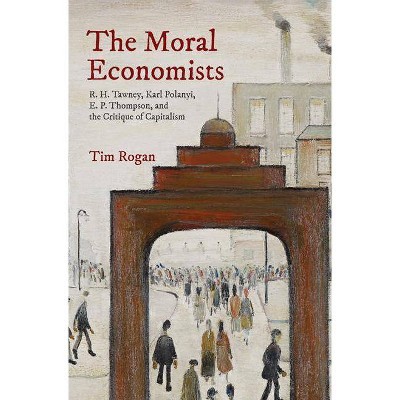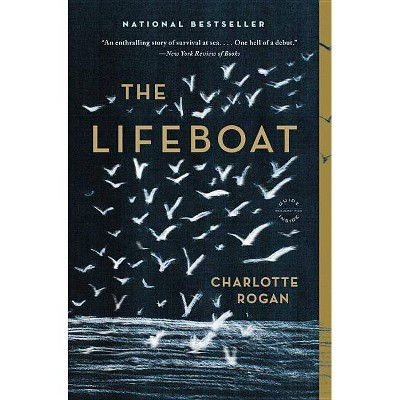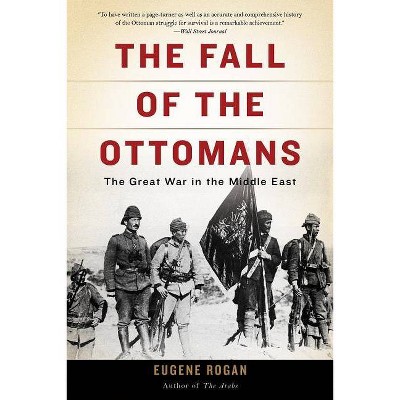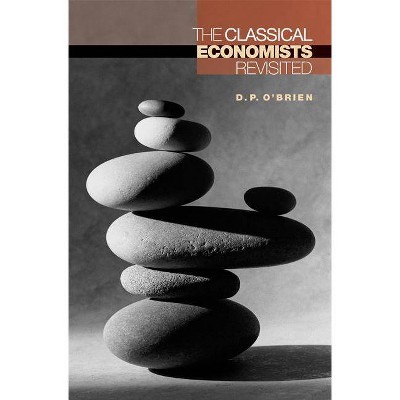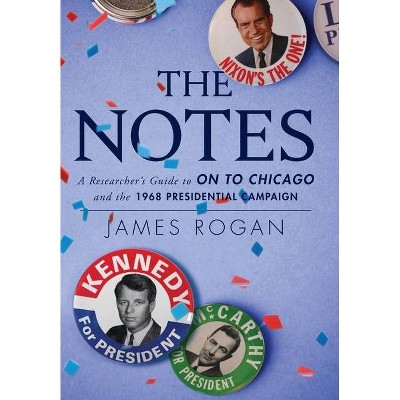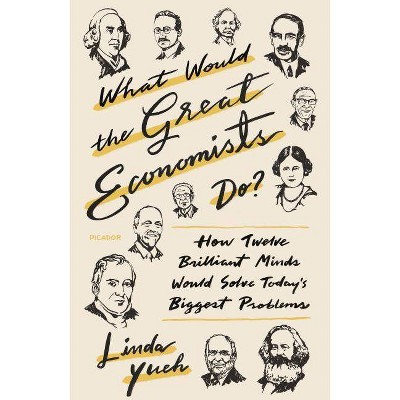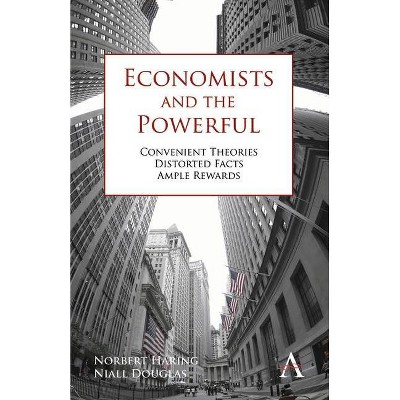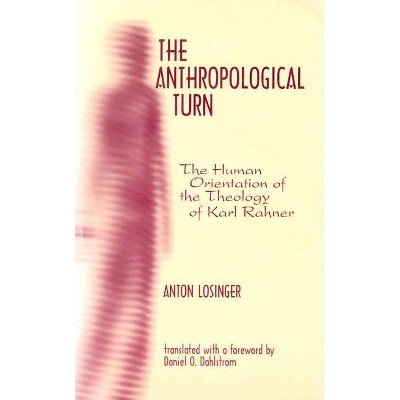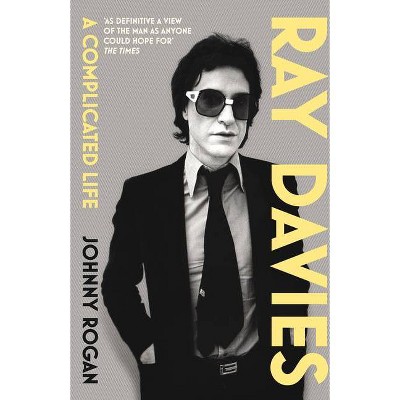The Moral Economists - by Tim Rogan (Paperback)
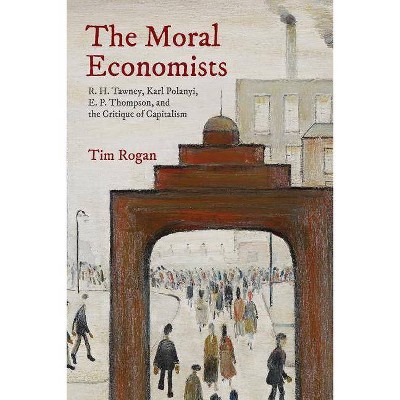
Similar Products
Products of same category from the store
AllProduct info
<p/><br></br><p><b> Book Synopsis </b></p></br></br><p><b>A fresh look at how three important twentieth-century British thinkers viewed capitalism through a moral rather than material lens</b> <p/>What's wrong with capitalism? Answers to that question today focus on material inequality. Led by economists and conducted in utilitarian terms, the critique of capitalism in the twenty-first century is primarily concerned with disparities in income and wealth. It was not always so. <i>The Moral Economists</i> reconstructs another critical tradition, developed across the twentieth century in Britain, in which material deprivation was less important than moral or spiritual desolation. <p/>Tim Rogan focuses on three of the twentieth century's most influential critics of capitalism-R. H. Tawney, Karl Polanyi, and E. P. Thompson. Making arguments about the relationships between economics and ethics in modernity, their works commanded wide readerships, shaped research agendas, and influenced public opinion. Rejecting the social philosophy of laissez-faire but fearing authoritarianism, these writers sought out forms of social solidarity closer than individualism admitted but freer than collectivism allowed. They discovered such solidarities while teaching economics, history, and literature to workers in the north of England and elsewhere. They wrote histories of capitalism to make these solidarities articulate. They used makeshift languages of "tradition" and "custom" to describe them until Thompson patented the idea of the "moral economy." Their program began as a way of theorizing everything economics left out, but in challenging utilitarian orthodoxy in economics from the outside, they anticipated the work of later innovators inside economics. <p/>Examining the moral cornerstones of a twentieth-century critique of capitalism, <i>The Moral Economists</i> explains why this critique fell into disuse, and how it might be reformulated for the twenty-first century.</p><p/><br></br><p><b> From the Back Cover </b></p></br></br><p>"This important book examines the origins, content, development, and eclipse of the 'moral economy' in twentieth-century British thought. Richly contextualizing a tradition that sought to critique capitalism in moral terms, <i>The Moral Economists</i> should command attention from intellectual historians, historians of capitalism, and anyone interested in thinking outside the terms of economic discourse today."<b>--Guy Ortolano, New York University</b></p><p>"<i>The Moral Economists</i> provides an original and provocative interpretation of the political thought of R. H. Tawney, Karl Polanyi, and E. P. Thompson. Rogan gives a close and illuminating reading of key texts by these authors, uncovers forgotten intellectual connections that link them together, and reveals a distinctive lineage of social criticism that deserves to be widely discussed. This is a highly impressive, thought-provoking, and timely work."<b>--Ben Jackson, University of Oxford</b></p><p/><br></br><p><b> Review Quotes </b></p></br></br><br><i>The Moral Economists</i> is part historiographical exegesis, part subtle polemic about the limitations of contemporary critiques of capitalism. . . . Rogan looks to history for help in understanding capitalism, its works and its empty promises.<b>---Katrina Navickas, <i>London Review of Books</i></b><br><br>A timely, vivid and attractive book, vindicating on every page Rogan's choice of three musketeers, handing on their flame to their noble heirs.<b>---Fred Inglis, <i>Times Higher Education</i></b><br><br>Rogan brings the authors and their perspectives closer to the reader not only by presenting their opus and their thoughts but also by contextualizing them . . . thoroughly and deeply researched.<b>---Christian Leitner, <i>Zeitschrift fuer Soziologie</i></b><br><br>Rogan's captivating work of intellectual history demonstrates that utilitarianism shaped much of the Left, as well as the Right's thinking on social questions.<b>---Patrick Diamond, <i>Times Literary Supplement</i></b><br><br>Rogan's reintroduction of Tawney, Polanyi, and Thompson to modern readers is a valuable endeavor.<b>---Joseph Coletti, <i>Journal of Markets & Morality</i></b><br><br>Tim Rogan's book is a fine example of intellectual history and will appeal to historically inclined humanists and social scientists at large, as well as to political activists, career politicians, and interested readers of all stripes, who, for one reason or another, may wish to ruminate on twentieth-century British experiences in civilising capitalism.<b>---Giorgio Baruchello, <i>European Legacy</i></b><br><br>Tim Rogan's book, <i>The Moral Economists: R. H. Tawney, Karl Polanyi, E. P. Thompson, and the Critique of Capitalism</i> (2017), ably reconstructs the first extensive crisis of liberalism.<b>---Pankaj Mishra, <i>New Yorker</i></b><br><p/><br></br><p><b> About the Author </b></p></br></br><b>Tim Rogan</b> is a fellow of St. Catharine's College, Cambridge, where he teaches history.
Price History
Cheapest price in the interval: 27.99 on October 27, 2021
Most expensive price in the interval: 27.99 on December 20, 2021
Price Archive shows prices from various stores, lets you see history and find the cheapest. There is no actual sale on the website. For all support, inquiry and suggestion messagescommunication@pricearchive.us
